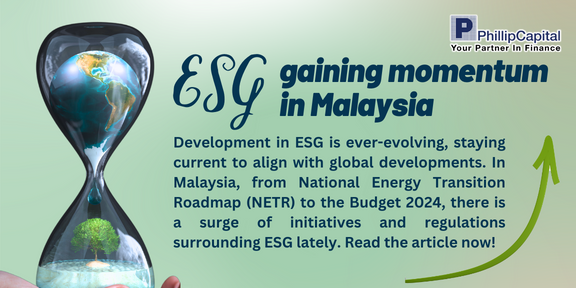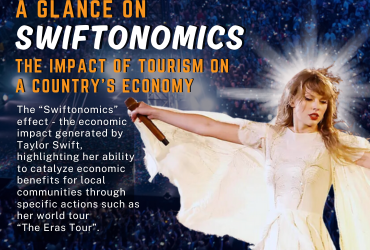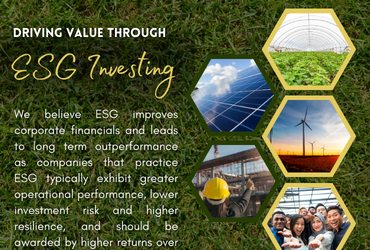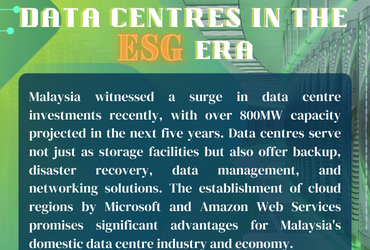
Development in ESG is ever-evolving, staying current to align with global developments. In Malaysia, from National Energy Transition Roadmap (NETR) to the Budget 2024, there is a surge of initiatives and regulations surrounding ESG. In our recent coverage, we delved into the topic of ESG Reporting for SMEs, Green Sukuk and other related topics.
There are some important developments in Malaysia’s ESG space lately. First and foremost, Bursa Malaysia on 4 December introduced the ESG Reporting Platform for Public Listed Companies (PLCs), a repository for disclosures aligned with enhanced sustainability reporting requirements. Accessible via Bursa LINK, listed issuers can generate a performance table for sustainability statements without extra costs, featuring indicators relevant to their sustainability matters. Bursa Malaysia aims to enhance ESG disclosures, acknowledging progress by issuers ahead of mandatory periods, and provides user guides and videos for platform navigation.
Separately, MITI is planning to employ i-ESG Phase 1.0 starting in 2024, focusing on the “Just Transition” for manufacturing companies, including MSMEs, aiding their sustainability journey. In Phase 1.0, these MSMEs will receive support for sustainability/ESG initiatives through self-assessment, outreach, training, and financing. Programs like i-ESGReady and i-ESGStart offer readiness assessments and practical guide. Concurrently, MITI targets a significant share of the ASEAN EV market, projected at $2.7 billion by 2027. Minister Tengku Zafrul Abdul Aziz emphasizes Malaysia’s competitive edge in EVs and ability in attracting investments. However, addressing critical challenges, particularly the improvement of the EV ecosystem, including a greener grid and enhanced power distribution networks, is imperative.
Finally, on 14 December, Bursa Malaysia announced 11 new additions to both the FTSE4Good Bursa Malaysia (F4GBM) Index and the Shariah-compliant FTSE4Good Bursa Malaysia Shariah (F4GBMS) Index. These indices, reviewed semi-annually, include public listed companies with strong ESG practices. The F4GBMS Index, designed for Shariah compliance, now has a total of 88 constituents. Separately, the continual increase in constituents, now at 109 for F4GBM, reflects positive growth since the index’s inception in 2014 with 24 constituents. Changes take effect on December 18, 2023. New inclusions in both F4GBM and F4GBMS include: Advanced Synergy, Avaland, Classic Scenic, Datasonic Group, Gamuda, Kawan Food, Kinergy Advancement, Kossan Rubber, MSM Malaysia Holdings, OCK Group and TDM, which now meet FTSE4Good criteria and Securities Commission’s Shariah Advisory Council (SAC) screening methodology, respectively. We view this as positive as Malaysia’s PLCs are increasingly taking proactive measures towards advancing ESG initiatives, contributing to the country’s efforts in achieving its net-zero goals.
Phillip Capital Management Sdn Bhd (PCM)’s role in ESG
In line with the nation’s goal towards sustainability, PCM has integrated ESG factors that we attest as material and relevant for a company’s financial performance and long-term sustainability into our investment decision-making process. These include but not limited to ESG ratings by established index, environmental considerations (climate change, natural resources preservation, pollution & waste), social considerations (health & safety, community engagement, employee relations) and governance considerations (board independence, transparency & disclosure, shareholder rights).
Separately, PCM offers discretionary portfolio that invests in stocks with high ESG ratings from the F4GBM and F4GBMS Indices, namely PMART and PMA ESG. There are both conventional and Shariah options available. PMART and PMA ESG is suitable for investors who want to optimise the risk-adjusted return by constructing a diverse sustainable portfolio of ESG companies.
To explore the companies in which both Conventional and Shariah ESG mandates invest, you can refer to the provided link. We like these companies because they have received high ESG ratings, which we believe can contribute to their long-term sustainability, responsibility, and profitability.
Please click on the link to learn more or email us at cse.my@phillipcapital.com.my if you require any further information.
Disclaimer:
The information contained herein does not constitute an offer, invitation or solicitation to invest in Phillip Capital Management Sdn Bhd (“PCM”). This article has been reviewed and endorsed by the Executive Director (ED) of PCM. This article has not been reviewed by The Securities Commission Malaysia (SC). No part of this document may be circulated or reproduced without prior permission of PCM. This is not a collective investment scheme / unit trust fund. Any investment product or service offered by PCM is not obligations of, deposits in or guaranteed by PCM. Past performance is not necessarily indicative of future returns. Investments are subject to investment risks, including the possible loss of the principal amount invested. Investors should note that the value of the investment may rise as well as decline. If investors are in any doubt about any feature or nature of the investment, they should consult PCM to obtain further information including on the fees and charges involved before investing or seek other professional advice for their specific investment needs or financial situations. Whilst we have taken all reasonable care to ensure that the information contained in this publication is accurate, it does not guarantee the accuracy or completeness of this publication. Any information, opinion and views contained herein are subject to change without notice. We have not given any consideration to and have not made any investigation on your investment objectives, financial situation or your particular needs. Accordingly, no warranty whatsoever is given and no liability whatsoever is accepted for any loss arising whether directly or indirectly as a result of any persons acting on such information and advice.






